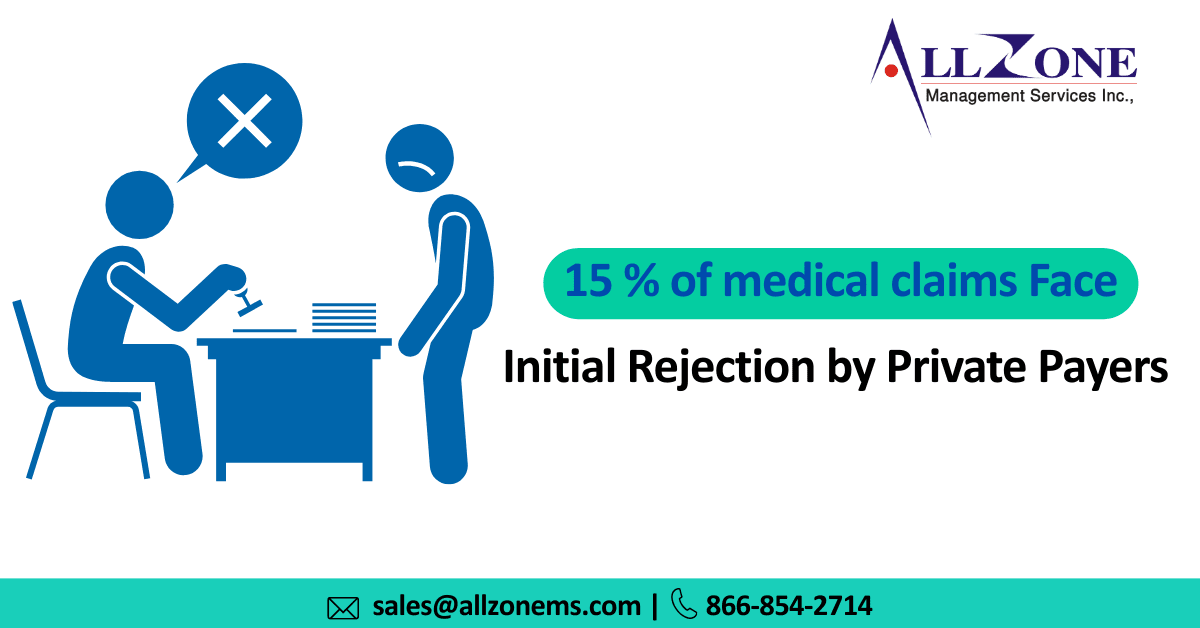The Rising Denial Rates in Healthcare Claims Processing
Initial Claim Denials: In a new survey conducted by healthcare Company an increased percentage of initial claims are denied by private payers, including pre-approvals for medical claims.
Hospitals, health systems, and post-acute care providers may have a difficult time getting paid for medical services.
The survey respondents representing over 500 organizations told Healthcare Company. That nearly 15 percent of medical claims are denied at first. The prior authorization process also included claims that were denied by an average of 3.2%.
In spite of the initial denial rate, healthcare company. reported that more than half of the claims rejected at first were reimbursed to providers. It is believed, however, that more initial denials could have been reimbursed if resources had not been limited, preventing healthcare providers from appealing and other options.
The Burden of Initial Claim Denials on Healthcare Providers
According to the survey, providers go through an average of three review rounds with payers before they are paid for initial claim denials. Providers are paying for services while waiting for reimbursement since each review cycle takes 45 to 60 days.
According to the survey, fighting claim denials costs on average $43.84. Medical claims are processed by payers every year, so Healthcare Company. Estimates that providers spend about $19.7 billion per year reviewing denials. According to the healthcare company, half of that amount – $10.6 billion – should have been reimbursed at the time of submission.
Moreover, labor costs are not accounted for in the $19.7 billion. For an inpatient surgical stay, this adds about $51.20 to the adjudication cost per claim, according to the American Medical Association.
According to Healthcare Company., more prevalent, higher-cost treatments tend to be denied claims. The average denial was for charges of $14,000 and up.
Over 14 percent of health system claims were past due for remittance because of reimbursement delays. In most cases, providers can’t recoup their costs for six months after their providers deliver the services.
Addressing the Burden of Initial Claim Denials and Prior Authorization in Medicare Advantage
In Healthcare Company’s opinion, the lengthy and costly claim denials management process negatively impacts patients and providers. Sometimes patients get unexpected bills after receiving services, so follow-up care is delayed. Even after a claim is eventually reimbursed, denials have been linked to lower patient satisfaction on the Consumer Assessment of Healthcare Providers and Systems (CAHPS) survey.
According to Healthcare Company. “Overall quality measures scores are artificially depressed by payer actions,” such as initial claim denial rates. Reduced quality scores have a material impact on provider revenue as the industry moves toward a value-based reimbursement model.
According to Healthcare Company the Medicare Advantage (MA) market is of considerable concern. Medicaid had the highest initial claim denial rate at 16.7 percent, followed by MA with 15.7%. The average cost to fight MA denials was $47.77 per claim.
MA’s prior authorization programs are also praised by healthcare company, which requires prior authorization for over a quarter of claims.
Recently, the company and 118 member organizations, including some of the top US health systems, called for CMS to protect continuity of care due to widespread reimbursement delays and denials. Prior authorization should be changed in the MA program to streamline the process, and coverage determination reviews should be conducted by physicians of the same specialty.
Furthermore, they requested that the agency collect data on MA denials and payment delays, consider patients’ experiences and access measures more heavily in MA Star Ratings, and take action against MA plans that fail to comply with coverage rules.

